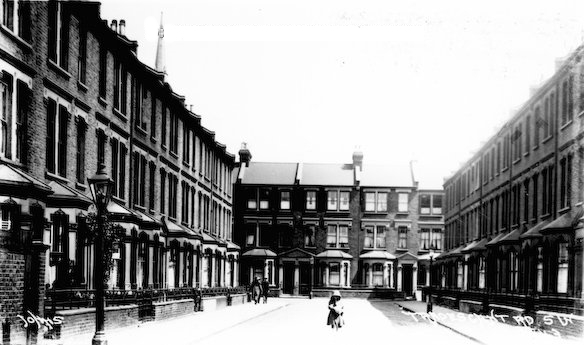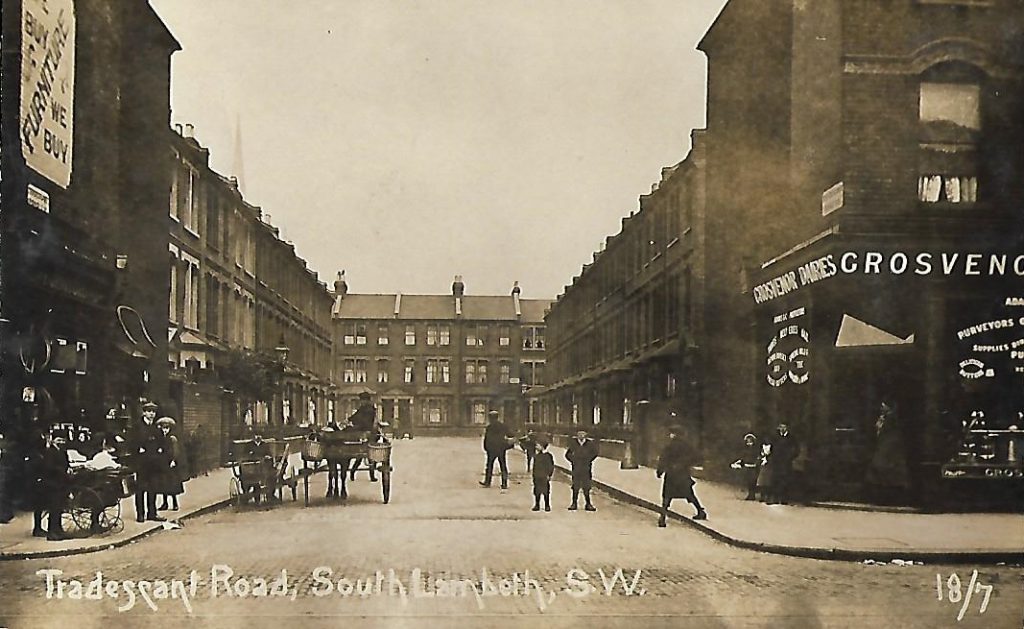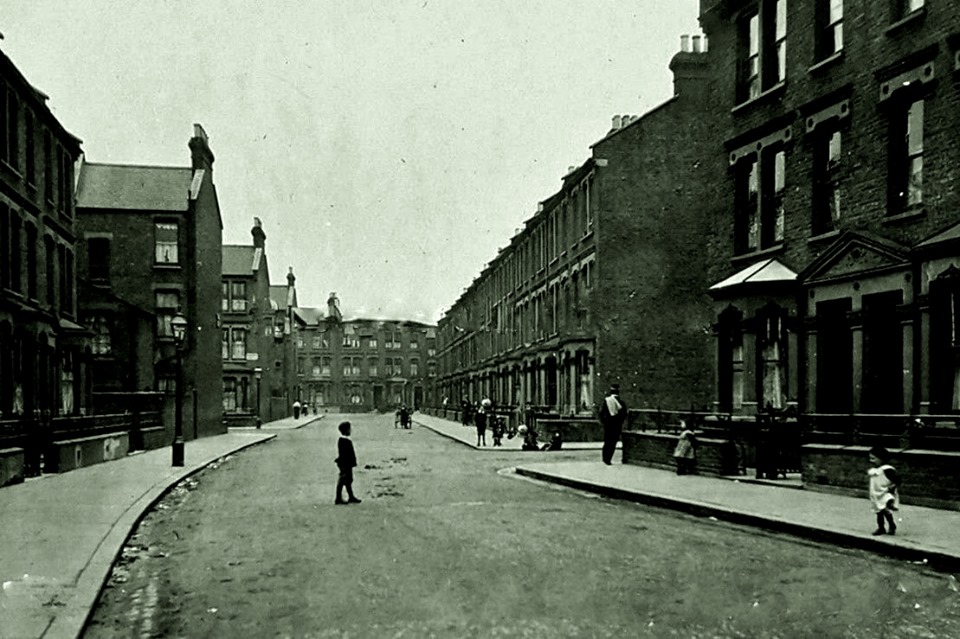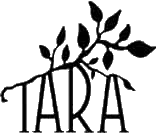On this page we’ll try and record a little bit about the history of each street. If you know anything about your own, please let us know…
You can see how the area has changed over the centuries at our maps page.
Tradescant Road and Walberswick Street



Tradescant Road seems to have been built around 1880/1. It was originally called Tradescant Street (the name was approved in 1880) but changed to Tradescant Road on 30 May 1911.
You can see the original leases for numbers 16, 25, 40, 46, 47, 49, 51, and 73 (possibly other, too) at the Lambeth Archives. The properties were leaseholds, some with a 90-year lease from Xmas Day 1880, with others starting the following year.
From The Times, 31 October, 1881
The Tradescant Gardens – The gardens through which King James I. wandered with his courtiers, and Charles I. and Villiers strolled with the frail beauties of those monarchs’ Courts to view the strange rarities which had been brought from foreign parts into “Tradescant’s Ark,” have at length yielded to the speculative spirit of the modern builder, and the four acres of land which they comprised have just been covered with houses.
The Turret-house, in the South Lambeth-road, in which lived John Tradescant, father and son, gardeners to two, if not three English monarchs, was one of those spots so strong in historical associations that in any other country but England some society of savants would have at least attempted its rescue. The first mulberry tree planted in England was planted in these gardens; the first idea of a botanical museum was sketched out in these grounds; and, in fact, posterity is indebted to the Tradescants for the introduction of the study of botany as a science into this country.
But none of these reminiscences appear to have enhanced its value one penny; as 4 acres, 14 perches of first rate building land simply, with most excellent frontages to a main road and contiguous to the City and the river, it realized £16,150.
The priceless collection formed by these enterprising, science-loving Dutchmen passed to Elias Ashmole, their personal friend and is, in fact, the collection now known as the Ashmolean Museum, at Oxford. There is a very good sketch of the old Turret-house in Pepys’s Library at Cambridge, distorted, however, by crocodiles and other “wonders” crawling about the grounds. Tradescant-road will now mark the site thus [only] in reminiscences.
Meadow Place
To follow. Please let us know if you have any information that will help.
Old South Lambeth Road / Heyford Terrace

Heyford Avenue
To follow. Please let us know if you have any information that will help.
Dorset Road
To follow. Please let us know if you have any information that will help.

